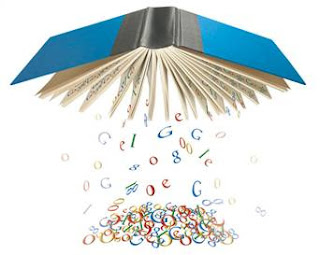 Librarianship sometimes feel (and sound) as if it's in disarray. The library discourse is often fractured and fragmented with so many difference viewpoints. Perhaps this is a result of being in our postmodern information age. Bodi and Maier-O'Shea's The Library of Babel: Making Sense of Collection Management in a Postmodern World asserts that libraries have to invest in and prepare for a digital future while maintaining collections and services based on a predominantly print world.
Librarianship sometimes feel (and sound) as if it's in disarray. The library discourse is often fractured and fragmented with so many difference viewpoints. Perhaps this is a result of being in our postmodern information age. Bodi and Maier-O'Shea's The Library of Babel: Making Sense of Collection Management in a Postmodern World asserts that libraries have to invest in and prepare for a digital future while maintaining collections and services based on a predominantly print world.How is it that we're in postmodern world of academic library collection management? Collections are no longer limited to a physical collection in one location; rather, they are a mixture of local and remote, paper and electronic. Hence, in their experimentations of collection development at two research and liberal arts college libraries, the authors realize that there should be three principles. We aren't reinventing the wheel here; but sometimes, amidst our heavy work days and busy lives, we often forget to step back to reassess how things can be done better. The authors offer an interesting viewpoint in this light:
(1) Break down assessment by subject or smaller sub-topics when necessary
(2) Blending of variety of assessment tools appropriate to the discipline
(3) Match print and electronic collections to departmental learning outcomes through communication with faculty members



